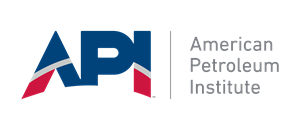New API report highlights broader global adoption of standards
The American Petroleum Institute (API) has released its ‘2025 API Standards International Usage Report’, detailing the growing international influence of API standards. The report identifies where governments and standards bodies reference API standards in policies, national and international standards, and technical regulations, highlighting the paramount role of API standards in advancing safety, sustainability, and efficiency across the global natural gas and oil industry.
“As the energy industry continues to evolve, API standards are more important than ever in driving consistent, high-quality practices worldwide,” said API Senior Vice President of Global Industry Services Anchal Liddar. “This report highlights the central role that API standards play in meeting global energy demands safely and sustainably.”
The 2025 report examines API standards' usage in 40 international markets across all industry segments and also identifies where API standards are referenced in standards published by the International Organization of Standardization (ISO). This significantly expands upon the scope from prior reports. Key findings include:
- Increased Global Reach: The report identified 1,395 references to API standards in laws, regulations, technical guidance, national standards, technical guidance and operational manuals—more than a 20% increase in references captured in the 2022 analysis (1,102 references).
- ISO Integration: The report identified 379 references to API standards within ISO standards, further underscoring API’s international impact.
- Industry-Wide Application: API standards are utilized across all industry segments, with 37% in upstream activities, 29% in downstream operations, 17% in midstream and transportation and 17% in areas such as petroleum measurement, fire safety and environmental protection.
- Broad Geographical Use: Governments adopting the greatest number of API standards in technical regulations include Indonesia (149), Canada (106), Brazil (99), India (90) and Mexico (86), Equatorial Guinea (84), and South Korea (64), data that illustrates API’s strong presence in various regions.
These findings demonstrate how API standards facilitate the harmonization of regulations, minimize trade barriers and promote technological innovation, enabling the energy industry to meet growing global demand more effectively.
Methodology
API selected the 40 markets for their industry's presence, growth potential and legislative considerations regarding standards and technical regulations. In assessing adoption and usage of its standards, API reviewed publicly available laws, regulations, national standards databases and industry practices. The actual number of API references and standards that were adopted is likely more profound, given that many references may exist in non-publicly available sources.



